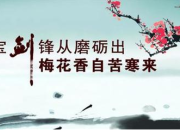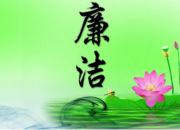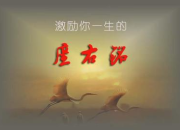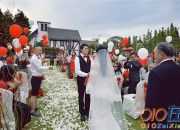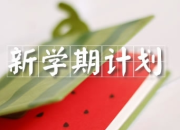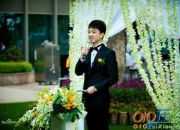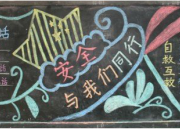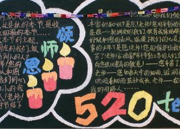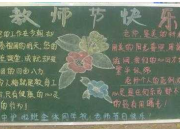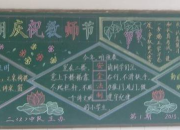介绍端午节的英语作文
时间:2021-08-31介绍端午节的英语作文(精选10篇)
在日常生活或是工作学习中,大家都写过作文,肯定对各类作文都很熟悉吧,作文是一种言语活动,具有高度的综合性和创造性。你知道作文怎样写才规范吗?下面是小编整理的介绍端午节的英语作文(精选10篇),希望能够帮助到大家。
介绍端午节的英语作文1
Dear Rick:
How is everything going? I had a five-day trip to London last week. I would like to express my gratitude for your hospitality and kindness when I was in London.
Knowing that you take a great fancy to Chinese culture, especially the Dragon Boat Festival, I would love to introduce it to you. The Dragon Boat Festival, one of the most traditional festivals in China, falls on the May 5th in the lunar calendar. People celebrate this festival in memory of Qu Yuan, who was a Chinese poet. Besides, people in China will also hold a variety of activities to honor him, such as dragon boat racing、eating zongzi and so on.
Welcome to China.You will have an unforgettable experience if you come to China before this festival.
Best wishes.
Yours sincerely,
Li Hua
【参考译文】
亲爱的瑞克:
过得可好?上周我去伦敦做了五天的旅行。我要感谢我在伦敦时对您的热情款待。
我知道你很喜欢中国文化,尤其是端午节,我想把它介绍给你。端午节,一个在中国最传统的节日,是在农历的5月5日。人们庆祝这个节日是为了纪念屈原,他是一位中国诗人。此外,人们在中国也将举行各种活动来纪念他,如赛龙舟,吃粽子等、。
欢迎来到中国,你会如果你来中国之前,这个节日有一个难忘的经验。
最美好的祝福。
谨上。
李华
介绍端午节的英语作文2
Fifth lunar month is the Dragon Boat Festival, also called DuanYangJie, afternoon day festival, may festival, ai festival, terminal five, midday, summer day. Although the name is different, but all around the custom of the peoples holiday is the same. The Dragon Boat Festival is Chinas two thousand years old customs, on this day, every family hanging moxa calamus, dragon boat racing, eating zongzi, drink realgar wine, swim all ills, sweet bursa.
Today is the Dragon Boat Festival, you know the origin of the Dragon Boat Festival? ! I dont know! Let me tell you! Do you remember the patriotic general chu qu yuan? I to say him!
Qu yuan is the warring states period abroad, very learned. He beside the king a few to image is his country rich and strong. Treacherous court official, listen to the words, bad king king chu qu yuan XiaoZhi exile. In exile, qu yuan heard that chu capital held by the enemy, and the people suffer, very indignation. Falls on this day, he came to the miluo river edge, with a stone, in order to jump jumped into the miluo river. Abroad people hear that cast jiang qu yuan was very sad. They rowed steadily to salvage qu yuan, with tears in their eyes, also threw rice dumplings into the river feed the fish, hope that the fish dont harm the body of qu yuan. This is may duanyang the origin of zongzi.
The Dragon Boat Festival has a lot of interesting activities. Columns such as dragon boat racing, hanging sachet, sachet, cinnabar, realgar, xiang, outsourcing to wire cloth, fragrance 4 excessive, again the five-color silk string into a rope buckle, for all kinds of different shape, form a series, variety, and exquisite. Have the habit of hanging moxa leaf, calamus.
There were so many activity in the Dragon Boat Festival!
农历五月初五为端午节,又称端阳节、午日节、五月节、艾节、端五、重午、午日、夏节。虽然名称不同,但各地人民过节的习俗是相同的。端午节是我国二千多年的旧习俗,每到这一天,家家户户挂艾叶菖蒲,赛龙舟,吃粽子,饮雄黄酒,游百病,佩香囊。
今天是端午节,大家知道端午节的来历吗?!不知道吧!那就让我来告诉你们吧!你们还记得楚国那位爱国大将屈原吗?我来说一说他吧!
屈原是战国时期出国人,很有学问。他在楚王身边做官,以形象是自己的国家富强起来。昏君楚王却听信奸臣的话,把屈原削职流放。在流放中,屈原听说楚国的都城被敌人占领,百姓遭难,悲愤极了。五月初五这一天,他来到汨罗江边,怀抱一块石头,以纵身跳入汨罗江中。出国的百姓听到屈原投江的消息,都十分悲痛。他们含着泪划着船赶来打捞屈原,还把粽子扔到江里喂鱼,希望鱼儿不要伤害屈原的身体。这就是五月端阳包粽子的来历。
端午节还有许多有趣的活动。列如赛龙舟,挂香囊,香囊内有朱砂、雄黄、香药,外包以丝布,清香四溢,再以五色丝线弦扣成索,作各种不同形状,结成一串,形形色色,玲珑夺目。还有挂艾叶、菖蒲的习惯。
端午节的活动可真多啊!
介绍端午节的英语作文3
The Dragon Boat Festival is a traditional festival of the han. It is a very important festival in our hometown, so every year the Dragon Boat Festival is very busy.
The Dragon Boat Festival is the most indispensable, nature is zongzi, every year the grandmother of the Dragon Boat Festival and everyone will pack hundreds of big dumplings! There are many kinds of dumplings, such as reed leaves, bamboo shoots, wild leaves and lotus leaves. But our hometown is a lot of reeds, so most of them are wrapped in reeds. First, grandma "rate the army" to pick reed leaves. When picking reed leaves, a large family listens to grandmothers labor trumpet: "come on! A zongzi three leaf! Hundreds of zongzi thousands of pieces, hey, come on!" Listen to the drum of the "general", "little soldier" more effort! After the reed leaves, just burn them. But the preparation material is not so simple, still have to go to the bazaar to buy the good red bean, the pork, the peanut, the plate millet, the jujube and the glutinous rice, also buy the red line!
Of course, the most fun time is when you make zongzi. When making zongzi, the man is responsible for cutting the meat into small pieces. Women are responsible for the washing of red beans and glutinous rice. The child was responsible for washing the basin clean, and then putting the mans work in a large basin. The older people are in charge. When everything is ready, the dumplings are started. The adults are working harder, and the kids? Is playing in a side, always when the adults do not pay attention to, to steal a couple of dates, mouth on the surface seems to be a little things didnt do, but in my heart secretly complacent - because jujube is delicious!
The final step is boiled dumplings, grandpa always keep the temperature of fire to grasp well, smell very sweet, very strong, if eating zongzi in the first, you can see the meat dumplings are always tender oil and see jujube rice dumplings are always the golden tender; The eight-treasure zongzi is always delicious, and we are cute.
Last year, my grandparents might have made zongzi, if they hadnt taken care of my uncle and aunt in yancheng. I was suddenly "disgusted" with my uncle, aunt, who had a good economic condition, why not find a babysitter? Take my joyful Dragon Boat Festival and zongzi all "take away", I be so angry! Or miss the delicious dumplings!
端午节是汉族的传统节日。在我们的家乡算得上是个特别重要的节日,所以每年的端午节都过得异常热闹。
端午节最不可少的,自然是粽子,每年端午节外婆和大家都会包上几百个大粽子呢!包粽子虽然有很多种,比如芦苇叶、竹笋叶、菰叶、藕叶等。但我们的'家乡是芦苇比较多,所以大多都用芦苇叶包了。首先,外婆“率兵”去采芦苇叶。采芦苇叶时,一大家子听着外婆的劳动号子:“加油!一个粽子三片叶子!上百个粽子几千片,嘿哟,加油!”听了“将军”的鼓劲,“小兵”们更加卖力了!采完芦苇叶,现在只要将它们暴晒就行了。但准备材料可没有这么简单哟,还得去集市上买来上好的红豆、猪肉、花生、板粟、蜜枣与糯米,还要买红线呢!
当然,最好玩的时候还是包粽子的时候。包粽子时,男人负责把肉切成不大不小的块儿;女人负责洗红豆、糯米之类的;小孩负责把大盆洗干净,再把大人加工好的东西装在大盆里;而老人们则负责指挥。一切准备好之后,就开始包粽子了。大人们干得格外卖力,而小孩们呢?却在一旁玩着,总是在大人们不注意时,偷一两颗蜜枣往嘴里塞,表面上似乎一点儿事都没做,可心里却暗暗自喜。因为蜜枣太好吃了!
最后一步就是煮粽子,烧火的外公总是把火候把握的很好,味道很香、很浓,如果在第一时间内吃粽子,你看到的肉粽子总是嫩地流油,看到的蜜枣粽子总是金黄柔嫩;看到的八宝粽子总是很可口,我们可爱吃了。
去年,要不是为了去盐城替舅舅、舅妈照顾表哥,外公外婆可能在包粽子哩。我突然有些“厌恶”舅舅、舅妈,他们家的经济条件不错,为什么不找个保姆?把我的欢乐端午节和粽子都“夺走了”,我好生气呀!也好怀念那味香色美的粽子呀!
